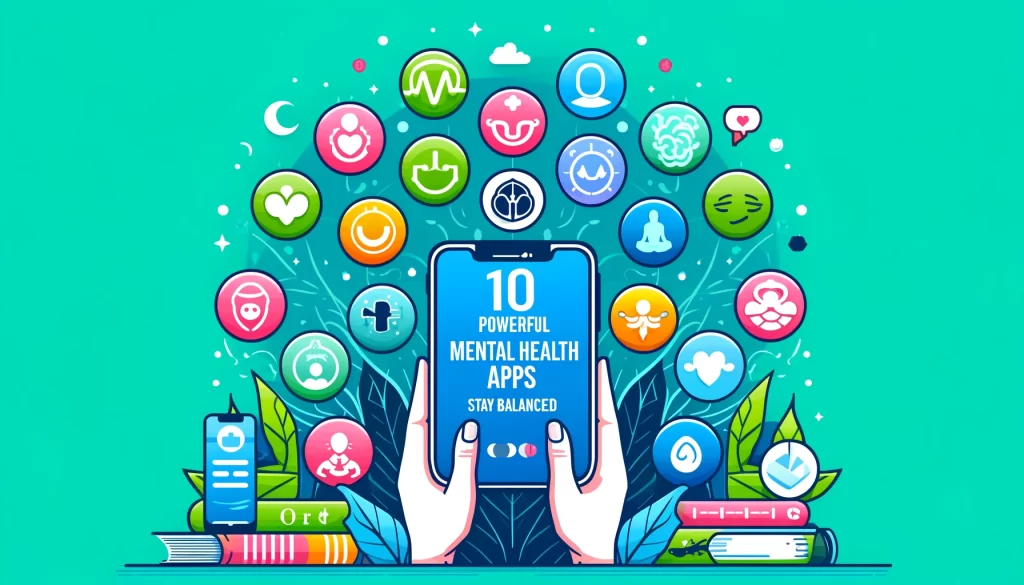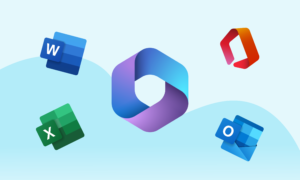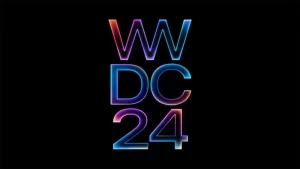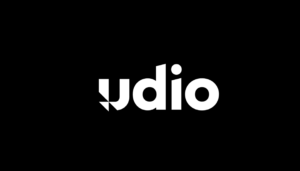
Maintaining mental health has become increasingly crucial in today’s fast-paced world. With the rise of digital technology, mental health support is now more accessible than ever. In this article, we’ll explore 10 powerful mental health apps that can help you stay balanced and improve your overall well-being.
Understanding Mental Health Apps
Mental health apps are designed to provide users with resources, tools, and support to manage their mental well-being. These apps range from meditation guides to cognitive behavioral therapy (CBT) tools, offering various methods to cope with stress, anxiety, depression, and other mental health issues.
Benefits of Using Mental Health Apps
- Accessibility: Mental health apps provide support at your fingertips, available anytime and anywhere.
- Affordability: Many mental health apps offer free versions or are more affordable than traditional therapy.
- Anonymity: These apps allow users to seek help discreetly.
- Variety: They offer a range of techniques and tools, catering to different mental health needs.
Criteria for Selecting the Best Mental Health Apps
- User Experience: The app should be user-friendly and intuitive.
- Effectiveness: Proven methods and evidence-based practices should underpin the app’s features.
- Reviews and Ratings: High user ratings and positive reviews are indicators of the app’s reliability.
- Customization: The app should allow for personalized experiences based on user needs.
Top 10 Mental Health Apps
1. Headspace: Meditation & Sleep
Overview: Headspace is a comprehensive app designed to guide users through meditation and mindfulness practices. It offers a variety of guided sessions focusing on stress reduction, sleep improvement, and overall mental well-being.
Key Features:
- Guided meditation sessions
- Sleep sounds and bedtime stories
- Mindfulness exercises
Pros:
- Easy to use
- Suitable for beginners and advanced users
- Scientifically backed techniques
Cons:
- Requires a subscription for full access
Why It’s Effective: Headspace’s structured approach helps users build a regular meditation practice, which has been shown to reduce stress and improve mental clarity.
App Store Links:
2. Calm: Meditation and Relaxation
Overview: Calm is another leading app in the meditation space, offering a wide range of resources to help users relax and improve their sleep.
Key Features:
- Guided meditations
- Sleep stories
- Breathing exercises
- Music for relaxation
Pros:
- High-quality content
- Beautifully designed interface
- Effective sleep aids
Cons:
- Some features require a premium subscription
Why It’s Effective: Calm’s diverse offerings cater to various needs, whether you’re looking to reduce anxiety, improve sleep, or just relax.
App Store Links:
3. Moodfit: Mental Health Fitness
Overview: Moodfit aims to help users track and improve their mental health through daily activities and mood tracking.
Key Features:
- Mood tracking
- Cognitive Behavioral Therapy (CBT) exercises
- Gratitude journal
- Personalized insights
Pros:
- Comprehensive mental health tool
- Customizable to user needs
- Free version available
Cons:
- Interface can be overwhelming for new users
Why It’s Effective: By allowing users to track their mood and activities, Moodfit provides valuable insights into patterns and triggers, helping users take proactive steps to improve their mental health.
App Store Links:
4. BetterHelp: Online Counseling
Overview: BetterHelp offers online therapy sessions with licensed professionals, making mental health support accessible from home.
Key Features:
- Access to licensed therapists
- Flexible scheduling
- Communication via text, call, or video
Pros:
- Convenient and flexible
- Wide range of therapists
- Confidential
Cons:
- Subscription-based service
Why It’s Effective: BetterHelp provides professional support that can be tailored to your schedule and needs, bridging the gap between traditional therapy and self-help.
App Store Links:
5. Happify: Science-Based Activities and Games
Overview: Happify uses games and activities based on positive psychology and CBT to help users reduce stress and build resilience.
Key Features:
- Engaging activities and games
- Progress tracking
- Personalized growth paths
Pros:
- Fun and interactive
- Scientifically grounded
- Easy to integrate into daily life
Cons:
- Some content requires a subscription
Why It’s Effective: Happify turns mental health exercises into engaging activities, making it easier for users to stick with the program and see results.
App Store Links:
6. Wysa: AI Chatbot and Therapist
Overview: Wysa uses AI to offer conversational support, guiding users through various mental health exercises and providing a listening ear.
Key Features:
- AI chatbot for conversational support
- Guided mental health exercises
- Mood tracking
Pros:
- Available 24/7
- Offers immediate support
- Free version available
Cons:
- Limited human interaction
Why It’s Effective: Wysa provides immediate, on-demand support, which can be crucial during moments of stress or anxiety, offering tools to help manage emotions effectively.
App Store Links:
7. MindDoc: Your Mental Health Companion
Overview: MindDoc provides structured programs designed by psychologists to help users understand and improve their mental health.
Key Features:
- Regular mental health assessments
- Personalized insights
- Self-help exercises
Pros:
- Scientifically validated
- Easy-to-follow programs
- Detailed progress reports
Cons:
- Some features are behind a paywall
Why It’s Effective: MindDoc’s regular assessments and personalized feedback help users stay informed about their mental health and take targeted actions to improve it.
App Store Links:
8. Sanvello: Stress and Anxiety Help
Overview: Sanvello offers tools and resources based on CBT to help users manage stress, anxiety, and depression.
Key Features:
- Guided journeys based on CBT
- Mood and health tracking
- Community support
Pros:
- Evidence-based techniques
- Supportive community
- Comprehensive resources
Cons:
- Requires a subscription for full access
Why It’s Effective: Sanvello’s structured approach and community support make it a robust tool for those looking to manage their mental health more effectively.
App Store Links:
9. Talkspace: Therapy for All
Overview: Talkspace connects users with licensed therapists for convenient online therapy sessions.
Key Features:
- Access to licensed therapists
- Flexible communication methods
- Wide range of mental health services
Pros:
- Professional and confidential
- Easy to fit into a busy schedule
- Extensive therapist network
Cons:
- Subscription-based
Why It’s Effective: Talkspace provides professional mental health support that is accessible and adaptable to individual schedules, making therapy more attainable for many people.
App Store Links:
10. Shine: Self-Care and Meditation
Overview: Shine focuses on self-care and daily motivation, offering meditations and self-improvement tools designed to support mental well-being.
Key Features:
- Daily motivational texts
- Meditation and mindfulness exercises
- Self-care community
Pros:
- Encouraging and supportive
- Great for daily motivation
- Free and premium options
Cons:
- Limited free content
Why It’s Effective: Shine’s emphasis on daily self-care and motivation helps users maintain a positive outlook and build resilience over time.
App Store Links:
FAQs
What are mental health apps? Mental health apps are digital tools designed to provide support, resources, and activities that help manage and improve mental well-being.
How can mental health apps help me? They offer convenient access to mental health resources, personalized support, and evidence-based practices to help manage stress, anxiety, and other mental health issues.
Are mental health apps a replacement for therapy? While mental health apps can provide valuable support, they are not a replacement for professional therapy but can complement traditional treatment.
Do I need to pay for mental health apps? Many mental health apps offer free versions, but premium features typically require a subscription.
Can I use multiple mental health apps simultaneously? Yes, using multiple apps can provide a more comprehensive approach to managing your mental health.
Are mental health apps safe to use? Most mental health apps are safe, but it’s important to choose apps with good reviews, high ratings, and those that follow privacy and data security guidelines.
Conclusion
Mental health apps offer a practical and accessible way to support your mental well-being. From meditation guides like Headspace and Calm to therapy platforms like BetterHelp and Talkspace, these apps provide a variety of tools to help you stay balanced. Whether you’re looking to manage stress, improve sleep, or seek professional counseling, these 10 mental health apps can make a significant difference in your mental health journey.





